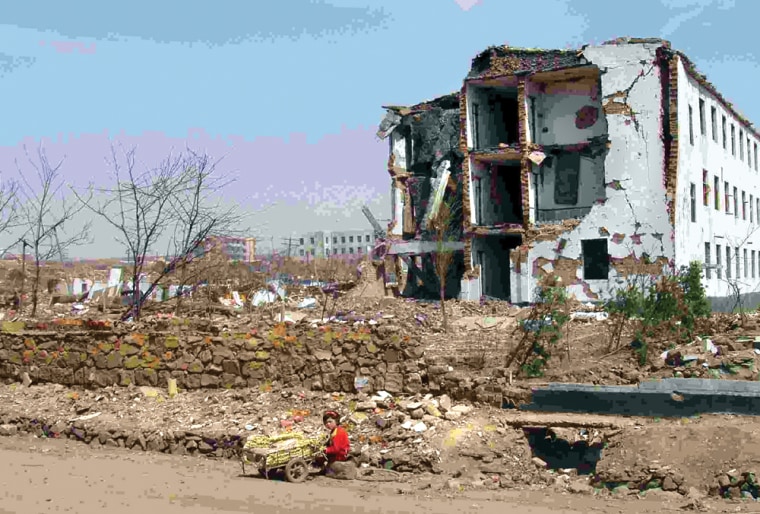North Korea’s admission that human error led to a deadly train blast, and its decision to let international aid groups visit the disaster site, represents an unusual degree of openness by the totalitarian nation.
The new candor could be a sign of the severity of the crisis at Ryongchon near the Chinese border rather than a move to ease up on the secretive ways North Korea has practiced for decades.
Even North Korean officials were surprised.
“I don’t know what really happened, but I think it is very serious because our government held out hand to the world community for help,” North Korea’s Deputy U.N. Ambassador Kim Chang Guk told Associated Press Television News in New York. “It means it is a great incident.”
One of the few other times the North has appealed for international help was during a deadly famine in the mid-1990s, when, as in the current crisis, it granted foreign aid workers more access than usual.
Few foreigners are allowed into North Korea and those who are must abide by tight restrictions. North Koreans themselves are virtually shut off from the outside world.
On Saturday, the North’s official news agency, KCNA, said the explosion that reportedly killed hundreds of people Thursday was “caused by carelessness during the shunting of wagons loaded with ammonium nitrate fertilizer and tank wagons.”
Departure from the norm
The frank, relatively swift admission was a departure from North Korea’s tendency to keep quiet about its weaknesses, including its decrepit, accident-prone industrial infrastructure. The North often blames its hardships on U.S. economic and political pressure, as well as floods and other bad weather.
It never mentions that mismanagement has contributed to the dismal living conditions.
North Korean public pronouncements are usually full of lofty praise for leader Kim Jong Il, the indomitable spirit of the military that keeps him in power, and the ideal of self-reliance in the face of an alleged American campaign to topple Kim.
It was unclear whether the admission of human error would be circulated within North Korea — a move that could undermine the credibility of Kim’s government — or was only for the benefit of an international audience.
Though North Korea expressed appreciation for international offers of humanitarian assistance, it was also unknown to what extent the communist government would allow foreign aid workers to operate at the site, or ferry injured victims to better medical care in neighboring China.
Aid officials traveling to the blast scene were not allowed to carry mobile communications, said Brendan McDonald, head of the U.N. office for coordination in Pyongyang.
